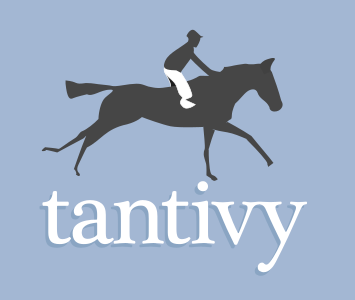Struct tantivy::IndexBuilder
source · [−]pub struct IndexBuilder { /* private fields */ }Expand description
IndexBuilder can be used to create an index.
Use in conjunction with SchemaBuilder. Global index settings
can be configured with IndexSettings
Examples
use tantivy::schema::*;
use tantivy::{Index, IndexSettings, IndexSortByField, Order};
let mut schema_builder = Schema::builder();
let id_field = schema_builder.add_text_field("id", STRING);
let title_field = schema_builder.add_text_field("title", TEXT);
let body_field = schema_builder.add_text_field("body", TEXT);
let number_field = schema_builder.add_u64_field(
"number",
NumericOptions::default().set_fast(Cardinality::SingleValue),
);
let schema = schema_builder.build();
let settings = IndexSettings{sort_by_field: Some(IndexSortByField{field:"number".to_string(), order:Order::Asc}), ..Default::default()};
let index = Index::builder().schema(schema).settings(settings).create_in_ram();Implementations
sourceimpl IndexBuilder
impl IndexBuilder
sourcepub fn settings(self, settings: IndexSettings) -> Self
pub fn settings(self, settings: IndexSettings) -> Self
Set the settings
sourcepub fn create_in_ram(self) -> Result<Index, TantivyError>
pub fn create_in_ram(self) -> Result<Index, TantivyError>
Creates a new index using the RAMDirectory.
The index will be allocated in anonymous memory. This should only be used for unit tests.
sourcepub fn create_in_dir<P: AsRef<Path>>(self, directory_path: P) -> Result<Index>
pub fn create_in_dir<P: AsRef<Path>>(self, directory_path: P) -> Result<Index>
Creates a new index in a given filepath.
The index will use the MMapDirectory.
If a previous index was in this directory, it returns an IndexAlreadyExists error.
sourcepub fn create_from_tempdir(self) -> Result<Index>
pub fn create_from_tempdir(self) -> Result<Index>
Creates a new index in a temp directory.
The index will use the MMapDirectory in a newly created directory.
The temp directory will be destroyed automatically when the Index object
is destroyed.
The temp directory is only used for testing the MmapDirectory.
For other unit tests, prefer the RAMDirectory, see: create_in_ram.
Trait Implementations
Auto Trait Implementations
impl RefUnwindSafe for IndexBuilder
impl Send for IndexBuilder
impl Sync for IndexBuilder
impl Unpin for IndexBuilder
impl UnwindSafe for IndexBuilder
Blanket Implementations
sourceimpl<T> BorrowMut<T> for T where
T: ?Sized,
impl<T> BorrowMut<T> for T where
T: ?Sized,
const: unstable · sourcefn borrow_mut(&mut self) -> &mut T
fn borrow_mut(&mut self) -> &mut T
Mutably borrows from an owned value. Read more
sourceimpl<T> Downcast for T where
T: Any,
impl<T> Downcast for T where
T: Any,
sourcefn into_any(self: Box<T, Global>) -> Box<dyn Any + 'static, Global>
fn into_any(self: Box<T, Global>) -> Box<dyn Any + 'static, Global>
Convert Box<dyn Trait> (where Trait: Downcast) to Box<dyn Any>. Box<dyn Any> can
then be further downcast into Box<ConcreteType> where ConcreteType implements Trait. Read more
sourcefn into_any_rc(self: Rc<T>) -> Rc<dyn Any + 'static>
fn into_any_rc(self: Rc<T>) -> Rc<dyn Any + 'static>
Convert Rc<Trait> (where Trait: Downcast) to Rc<Any>. Rc<Any> can then be
further downcast into Rc<ConcreteType> where ConcreteType implements Trait. Read more
sourcefn as_any(&self) -> &(dyn Any + 'static)
fn as_any(&self) -> &(dyn Any + 'static)
Convert &Trait (where Trait: Downcast) to &Any. This is needed since Rust cannot
generate &Any’s vtable from &Trait’s. Read more
sourcefn as_any_mut(&mut self) -> &mut (dyn Any + 'static)
fn as_any_mut(&mut self) -> &mut (dyn Any + 'static)
Convert &mut Trait (where Trait: Downcast) to &Any. This is needed since Rust cannot
generate &mut Any’s vtable from &mut Trait’s. Read more
